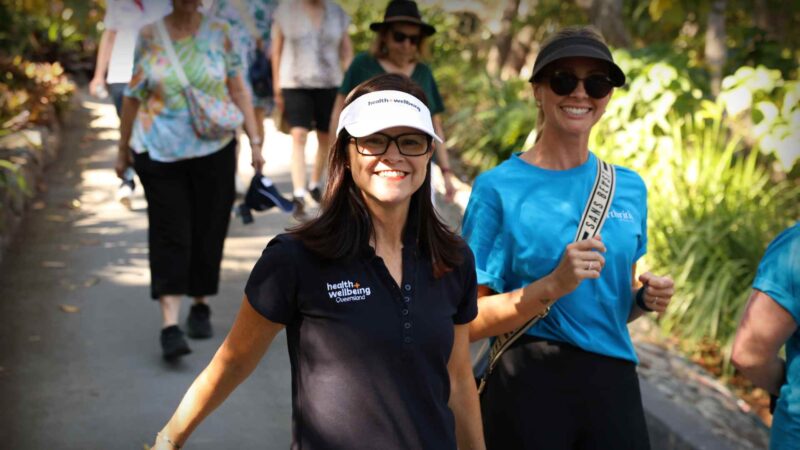GENOMICS AND RATIONALLY TARGETED THERAPIES IN ACUTE LYMPHOBLASTIC LEUKAEMIA
Professor Deborah White
Theme Leader Precision Cancer Medicine &
Group Leader Acute Lymphoblastic Leukaemia Group
South Australian Health and Medical Research Institute (SAHMRI)
Adelaide, South Australia
RESEARCHER PROFILE
Filmed in Adelaide, South Australia | February 2025
Professor White is the Precision Medicine Theme Leader at the South Australian Health and Medical Research Institute (SAHMRI) in Adelaide. She is a NHMRC RD Wright Biomedical Research Fellow, a Beat Cancer Principal Research Fellow and Senior Principal Research Fellow with SAHMRI. She is a Professor in Health and Medical Sciences at the University of Adelaide and Health Sciences at University of South Australia.
Prof White’s research focus is genomics and rationally targeted therapies in Acute Lymphoblastic Leukaemia (ALL) and Chronic Myeloid Leukaemia (CML) and she holds peer reviewed grants from: The William Lawrence and Blanche Hughes Foundation and the Leukemia & Lymphoma Society (USA), the NHMRC, the Leukaemia Foundation Australia (LFA), Channel 7, Cancer Australia, Tour de Cure and the Cancer Council SA (CCSA). Professor White has presented more than 170 papers at scientific meetings, and authored more than 100 scientific publications as well as being an inventor on several international patents.
Professor White is the National Flagship Lead for the ALL Stream of Australian Genomics, and SA scientific lead for Zero Children’s Cancer She is an active member of the National Health & Medical Research Council (NHMRC) being a member of the NHMRC Academy, the Translational Research Program Advisory Committee, and the Women in Health Science (WiHS) Committee. She is a member of the Editorial Board for Cancer Letters.
In 2014 she was recognised as the Australian Society for Medical Research (ASMR) Leading Light for her Medical Research and in 2016 was awarded the University of Adelaide James McWha medal. In 2019 she was awarded a prestigious NHMRC Research Excellence Award and awarded the Beat Cancer Women in Leadership Award in 2020.
You Might also like
-
Paediatric obesity prevention, nutrition and dietetics
Leveraging a systems-based and collaborative approach, Dr Littlewood over the past 25 years has driven research and data outcomes in the area of health and wellbeing. Dr Littlewood leads a dedicated team focused on making healthy happen for all Queenslanders, with a particular focus on improving health outcomes for the next generation.
-
Dr Meghan McIlwain
DR MEGHAN MCILWAIN, CLINICAL RESEARCH MANAGER
PRESIDENT, THE NEW ZEALAND ASSOCIATION OF CLINICAL RESEARCH,
AUCKLAND, NEW ZEALAND -
Dr Kelly-Anne Masterman
RESEARCH IN NEEDLE-FREE VACCINE DELIVERY SYSTEM
@ VAXXAS, BRISBANE, QUEENSLAND, AUSTRALIA



